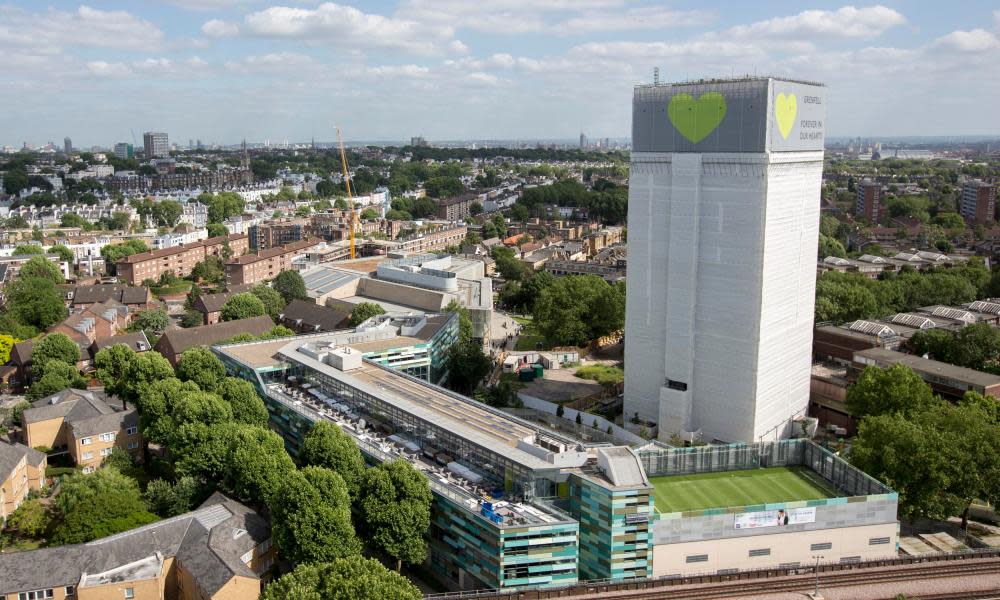Grenfell Tower area residents told: return home or lose council tenancies

Traumatised residents who lived in the vicinity of Grenfell Tower have been given an ultimatum by Kensington and Chelsea council about returning to their homes, the Guardian has learned.
Residents who were evacuated on the night of the fire last year who lived in the Walkways or in nearby Treadgold or Bramley House – an area of low-rise housing connected to the tower – are due to receive letters from the council on Wednesday or Thursday saying they are expected to make a decision by the end of this month about returning to their former homes. Those who do not return will have their council tenancies terminated.
A council spokesman said fewer than 80 residents who lived in the Walkways were affected by this policy as many others stayed in their homes after the fire or if they left on the night of the fire have already returned.
The letter from the council states that these residents are likely to have to start paying higher rents from 22 October if they do not return to their former homes.
At the moment council tenants evacuated from their homes after the fire into temporary accommodation pay the rent they were paying to the council before the fire, not the higher cost of temporary accommodation. Tenants may be eligible for housing benefit to cover some or all of the higher cost.
“If you do not feel able to return home you will have to end your council tenancy,” the letter states. However, it adds that nobody will be forced to give up their tenancy against their will and that those unable to make a decision by the end of this month will be given more support to help them make their decision “within a reasonable timescale”.
The letter points out that those wishing to be rehoused rather than returning to their homes in the shadow of the tower may have a long wait – even those deemed to be in emergency medical priority or at serious risk of harm will have to wait more than a year for a two-, three- or four-bedroom property.
Beinazir Lasharie and her family are among the residents affected by this policy. She and her children remain traumatised by the fire. She condemned the council’s new policy.
“Due to the health issues and trauma of my children and the proximity of our flat it’s unreasonable to give us the ‘choice’ of either moving back or relinquishing the tenancy,” she said.
“Our lives have changed forever and none of it is our fault. I had a plan mapped out for me and my kids. All that has gone and I am no longer able to provide my children with security and I have no idea what our future looks like.
“We have no choice right now and cornering us with an ultimatum is really stressful, I don’t have a choice, my family has been split up and we are depressed and traumatised and I have three small vulnerable children to look after.”
The local Labour councillor Judith Blakeman, who has a large caseload of residents’ housing problems following the fire, said: “The policy takes little account of personal circumstances. The council are still forcing people to decide when they may be too traumatised to do so.
“In effect they are saying ‘trust us’ at a time when there is no trust in the council. Residents will have no clear indication of how or where they will be rehoused, nor what type of tenancy they will be given.”
The local Labour MP Emma Dent Coad said: “The deadline is creating a climate of fear which is both inhumane and hindering the ability of deeply traumatised people to make important decisions about their futures.”
A spokesman for the council said: “We will work with tenants to ensure they get the right homes for them. We will go above and beyond to help them and be flexible. This will not preclude them using all the options open to them. No tenant will be left homeless.”

 Yahoo News
Yahoo News 
